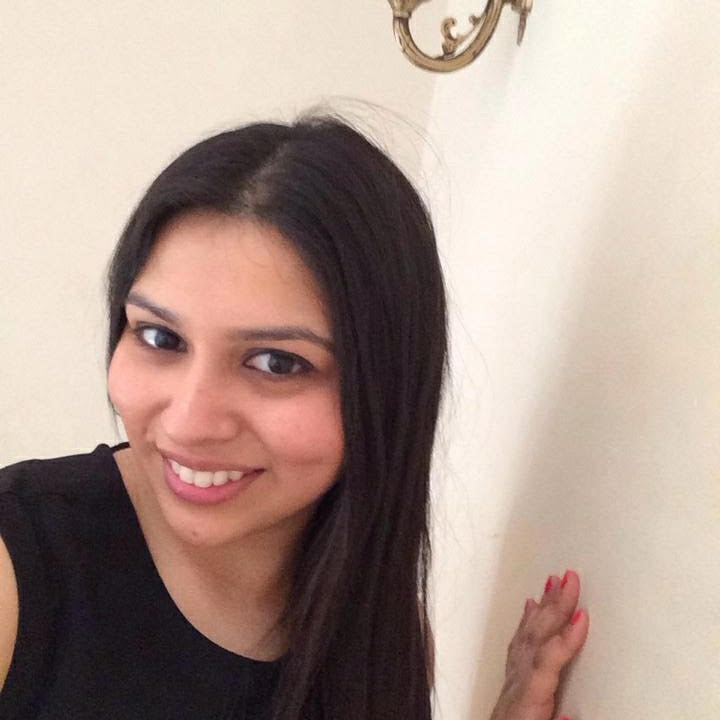My fight with a male cousin who thinks Khatna is good
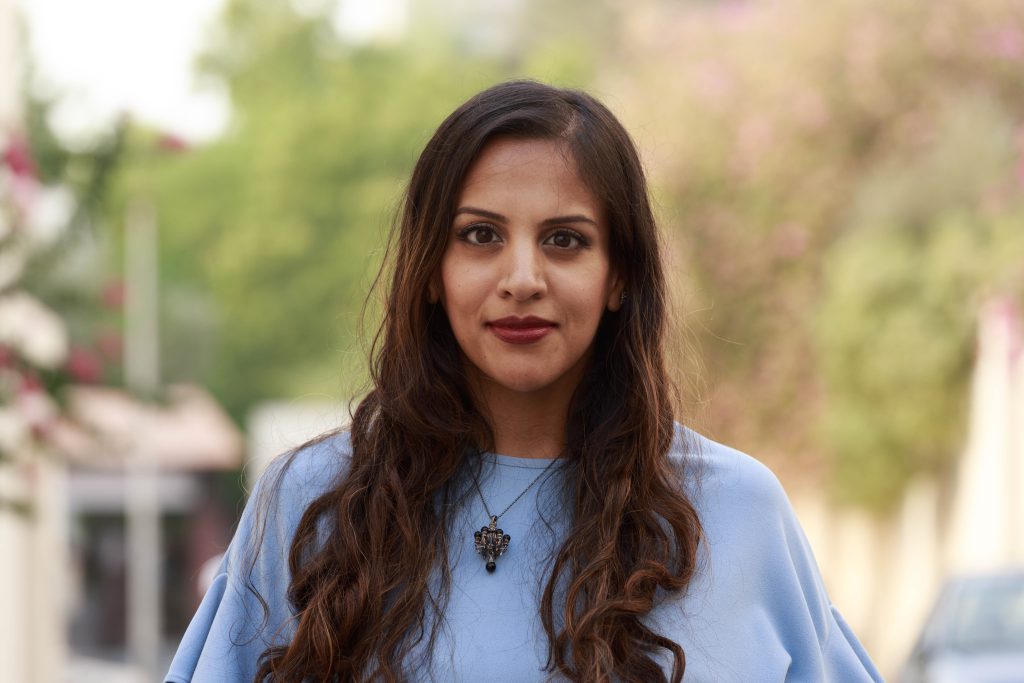
By: Shabana Feroze Every year, Feb 6 is International Day of Zero Tolerance for Female Genital Mutilation by the United Nations. Being a survivor of FGC myself, I’m an active volunteer with Sahiyo, and as such, I shared a post about the day and about Sahiyo on my Facebook profile page. I got a few likes but after a few hours, one of my male cousins commented on the post with a link to femalecircumcision.org. The article on that website spoke about how FGC is necessary and a good thing. When I saw that comment, I was naturally affronted. The first thought that ran through my head towards my male cousin was – no vagina, no opinion, sweetheart. It bothers me so much that MEN think they can make decisions on what needs to be done to women’s bodies. You are not a woman. You are not entitled to tell women what we can or cannot do with our bodies. I underwent FGC when I was seven. I’m the one who was traumatized. Not you. I’m the one who has to deal with the pain that part of my body is missing because of a traditional ritual, not you. How dare you tell me that what happened to me was necessary and a good thing and that it should continue happening. I had a long argument with him through Facebook comments, telling him the thoughts I listed above. I even said that if he thinks the practice is good and necessary, then the girl should be able to grow up and decide to do it for herself. His response, “My Body, My Rights is a cheesy line”. His lack of acknowledging my personal experience in having undergone FGC said to me that he believed the larger society could do anything to my body or to any one else’s body. He then posted another link from the same website on consent and parental rights. The article claims “Although regulated, a parent’s right to make decisions on behalf of a child is acknowledged as fundamental and universal, even for practices which can cause harm to the child and carry no medical benefit.” Yes, the article acknowledged that FGC is harmful, but the article lessened the pain, and compared FGC to practices such as ear piercing and vaccinations. These procedures are legal and harmless. The article also claimed that Prophet Muhammad said FGC should be done, and gave a few spiritual and religious reasons like ‘taharah’ for doing so. His recurring point was that KHAFZ IS NOT FGM (written in caps). Throughout the conversation of me refuting his points with science and hard fact and telling him that the World Health Organisation recognizes all forms of cutting of the female genitalia as FGM, I found that his counter points were always mired in spirituality and religion (this cousin of mine is a mulla or a sheik in the Bohra community). I find the entire notion that ‘khafz is not FGC’ as preposterous. It’s the same thing, no matter what name you give it. Medical research has shown that FGC is harmful. FGC is opposed by the United Nations and the World Health Organization. So please don’t tell me that FGC is a good thing. Further what really, truly angers me is that my cousin, this MAN is fighting me on and issue that affects the woman’s body, my body! My cousin’s attitude reminded me of his male privilege, and his inability to understand that he has no ability to control my body or to think he knows what is best for me as a woman. And this reality scares and saddens me the most because my cousin is also the father of two girls, who if they undergo FGC, will forever be reminded that they too, just like me, had no control over our own bodies.
Volunteer Spotlight: Alisha Bhagat

Alisha is passionate about working with organizations to think systematically about a sustainable future for people and the planet. She is a futurist and strategist at Forum for the Future, a sustainability non-profit that works with companies on long-term thinking and systems change. Prior to joining Forum, Alisha was a foreign policy consultant for the US government. She first became an activist through protesting the war in Afghanistan in 2001. Alisha has served on the board of BitchMedia, a feminist media organization since 2016. In the past, she was a Girl Scout troop leader in her community. She holds an MS in Foreign Service from Georgetown University and a BS from Carnegie Mellon University. When not thinking about and shaping the future, Alisha is an avid gamer and science fiction enthusiast. She lives in Brooklyn with her husband, adorable daughters, and loving cat. 1) When did you first get involved with Sahiyo? I first became involved with Sahiyo in August 2016, when a friend connected me with Mariya, Sahiyo’s co-founder. 2) What opportunities have you been involved with at Sahiyo? I made a documentary back in 2004 called Deen and Duniya that deals with religion and modernity in the lives of Dawoodi Bohra women in Mumbai. One of the topics covered is FGC. The film had been casually circulated amongst friends and family but given its relevance to Sahiyo’s work, Sahiyo asked if they could feature it on their blog so I did a short write up of it, which you can read by clicking here. Most recently, I helped organize an activist retreat in New York for eleven activists associated with Sahiyo and working on FGC within the Bohra community. It took many months of planning, but we had a really productive retreat where activists were able to connect, find community, and better equip themselves to be change agents. 3) How has your involvement impacted your life? Being an activist is very empowering and meaningful to me. When I first found out about FGC in the Bohra community, I felt a number of things: shock, outrage, and helplessness. Engaging in activism is a way to reclaim power and agency. I strongly believe that the future is what we create so if this is something we do not want, we need to work towards making this practice a thing of the past. I’m so glad to be part of a community of people who feel similarly, who share not only the same cultural and religious background but also the same values. My involvement makes me hopeful for the future. 4) What pieces of wisdom would you share with new volunteers or community members who are interested in supporting Sahiyo? Start with a small action. Perhaps it is talking about Sahiyo’s work with a friend or sharing a survivor story. Maybe it means hosting an event or attending a workshop. The first step to engage is challenging but doesn’t have to be overwhelming. Think about a way that you could engage and contribute and find a way to do so that is personally meaningful. Also, if you don’t know how to participate – reach out! There is so much we can do together.
Sahiyo Volunteer Spotlight: Geethika Kodukula
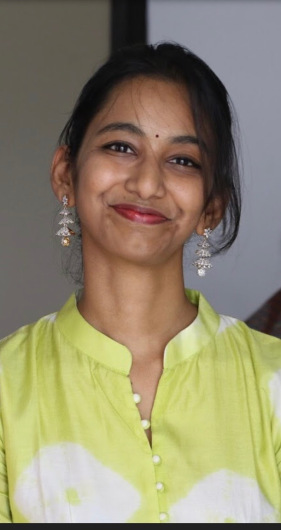
Geethika is a graduate student of Biostatistics in Public Health at Kent State University, Kent Ohio. Originally from Hyderabad, she has been involved in social work since 2011 when she started studying Math, Stats, and Computers at St. Francis Degree College for Women. She is a dog person and endeavors to study Mental Health and suicidality among vulnerable populations. When she is not working on her research, she tries to read fiction and play video games. 1) When did you first get involved with Sahiyo? I first reached out to Sahiyo in April 2016. 2) What opportunities have you been involved with at Sahiyo? I proofread and edit the newsletters, blog posts, and media reports for readability, help with sending out the newsletter, spread the word among my peers, and help maintain the Sahiyo blog. 3) How has your involvement impacted your life? I am proud to be a part of this community. It’s terrific to read our volunteers’ and founders’ achievements each month. The impact that we are trying to create together empowers me and helps me fight the helplessness I feel in the face of injustice. Survivor stories each month keep me motivated to keep fighting. 4) What pieces of wisdom would you share with new volunteers or community members who are interested in supporting Sahiyo? Never underestimate what you can do. Ask for help when you need it. Be brave enough to start a conversation that matters. Don’t forget to take care of yourself!
Sahiyo Volunteer Spotlight: Roshan Kokane
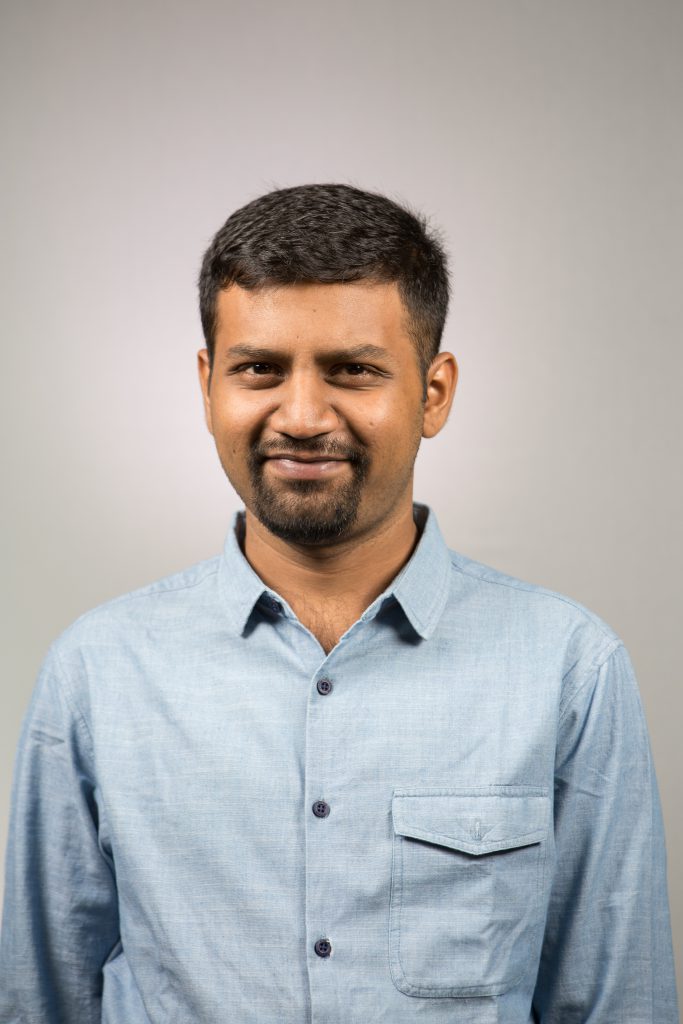
Roshan Kokane is based in India and has been Sahiyo’s social media intern since July 2017. He is a journalist and web editor by profession and graduated in journalism from the University of Mumbai. He plans to continue his education in the field of journalism, human rights, public policy and public health to build a career and life in which he can effectively support every cause he believes in. To learn more about how he has supported our work at Sahiyo, read his interview below. 1) When did you first get involved with Sahiyo?I first got involved with Sahiyo in mid-2016 when I interviewed one of their co-founders for the article I was working on. Luckily, I got really intrigued upon chatting with them and knowing what they do and instantly felt the need to support the project. I have no first-hand experience of undergoing genital cutting and neither does someone from my family but when I first read about it in my college, it affected me. I knew I had to support the project somehow and began working with Sahiyo. I still help them out whenever I can and in whatever capacity they find me useful in. 2) What opportunities have you been involved with at Sahiyo?I have started working on Sahiyo’s social media channels. I want to help the organisation in amplifying its reach and get more people to understand the impacts of Female Genital Cutting on survivors. I also look forward to helping Sahiyo with their website and reporting. 3) How has your involvement impacted your life?I have really learned a lot from the little time I have spent working with Sahiyo. The co-founders are extremely humble and come with great knowledge and understanding of the subject. They have the right kind of treatment mapped under their objectives for everyone who seeks involvement. The recent investigation had a tremendous impact on the policies around Female Genital Cutting in Kerala and they work the organisation does is truly inspiring for me. Through my involvement, there has been a lot of learnings on human rights, violation of human rights, abuse, trauma, survivors’ strength and compassion for each other. 4) What pieces of wisdom would you share with new volunteers or community members who are interested in supporting Sahiyo?Please support Sahiyo in every way you can. This is the social innovation (creating change and impact through conversations) we need to ensure that every human being deserves their right to live and no power can bring anyone to do something that’s not just abuse but a severely traumatic practice under the pretext of curbing their sexual desires or citing religious or health benefits. Sahiyo does a commendable job in proving that there are no medical benefits to female genital cutting and is very ethical and strong as a group with its values to end Female Genital Cutting worldwide.
Sahiyo Volunteer Spotlight: Shabana Feroze

Based in Bahrain, Shabana Feroze is a Bahraini citizen originally from India. She started volunteering with Sahiyo in April 2017 and is the owner of advertising agency The Silver Kick Company and co-owner of a lace fashion business called Lace Love. She teaches Les Mills group fitness classes in the evenings and is a style and travel blogger at TheSilverKickDiaries.com. She believes in chasing her passions and standing up for what she believes in. 1) When did you first get involved with Sahiyo? I first got involved with Sahiyo in April, when I signed the petition for the UN to invest in research and support to end FGC in Asia. I commented on the petition that I’m signing as I’m a victim myself, and Mariya responded to me asking me if I would like to share my story on Sahiyo’s website. I then shared my story on the website and became a volunteer soon after. 2) What opportunities have you been involved with at Sahiyo? I try and help in any way I can as I want to support these incredible women who founded the group, and this worthy cause, as much as I can. I have helped make the website feedback evaluation questionnaire, helped to draft social media posts, and have been an interviewee for a research project based in Mumbai that will help activists who aren’t from the community. Currently, I’m working with the social media intern at Sahiyo to make their social media more effective and reach more people. And of course, I have shared the petition with my network and keep sharing news about FGC and Sahiyo’s research as much as possible so I can get friends and family to support the cause, and get them to share it with their friends and family. 3) How has your involvement impacted your life? I do think that being involved with Sahiyo has helped to reduce the pain of being a victim of FGC. It makes me feel so good that I’m able to be a voice of Sahiyo and to help spread the word that FGC is harmful, unnecessary, and traumatizing. Ever since I realized I’m a survivor of FGC (my memory had blocked it out), I have been wanting to do something to stop FGC and through Sahiyo I get to do it. It has given me the courage to be able to talk to my cousins and friends to not have it done to their daughters or other girls in the family. 4) What pieces of wisdom would you share with new volunteers or community members who are interested in supporting Sahiyo? Every little bit counts. There are many small jobs that need help inside the organization which we, as outsiders, don’t realize. So please volunteer and help out in those jobs. The founder members are already doing a lot of selfless work and spending lots of time to make Sahiyo a strong voice, and every little thing you can do to help them will help Sahiyo become stronger.
Sahiyo Volunteer Spotlight: Lubaina Plumber

Lubaina Plumber is a U.S. based volunteer who has been with Sahiyo for a year now. She was a human rights lawyer in Mumbai who just graduated from Washington University School of Law, St Louis with her Masters in Law. She plans to continue her education in the field of public policy and management to build a career and life in which she can effectively support every cause believes in. To learn more about how she has supported our work at Sahiyo, read her interview below. When did you first get involved with Sahiyo? I got in touch with Zehra Patwa, whose article I read a few years ago and she, in turn, put me in touch with Mariya Taher. I spoke to Mariya about opportunities to work for the cause and began my journey, being involved with Sahiyo. What opportunities have you been involved with at Sahiyo? I have written some articles, worked on a handbook and other material and actively participated on the Whatsapp group, set up the Instagram page, and try to do as much as time permits when the opportunity presents itself. How has your involvement impacted your life? Working with an organization teaches one a lot about group involvement, support, and unity. Being involved with an organization that fights for a cause that is very personal for me, is like having a platform for your voice. Sahiyo has given me the gentle push and reminder to keep fighting for my cause, whether or not I see results immediately. What pieces of wisdom would you share with new volunteers or community members who are interested in supporting Sahiyo? I am an advocate and fan of being involved with organizations that support the causes you believe in. Support is the best way of showing your concern and using your time wisely. I would say that people should be open-minded and not hesitate to raise questions — if there is something you don’t agree with, ask and you will receive answers. My personal experience has lead me to believe that Sahiyo respects their volunteers and their opinions as much as we do the cause and the fight for it.
Sahiyo Volunteer Spotlight: Chandni Shiyal
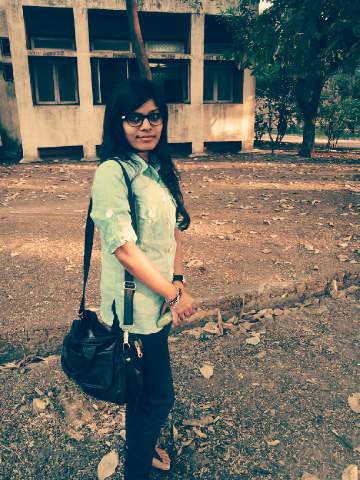
Sahiyo Volunteer Spotlight: Mariya Ali
